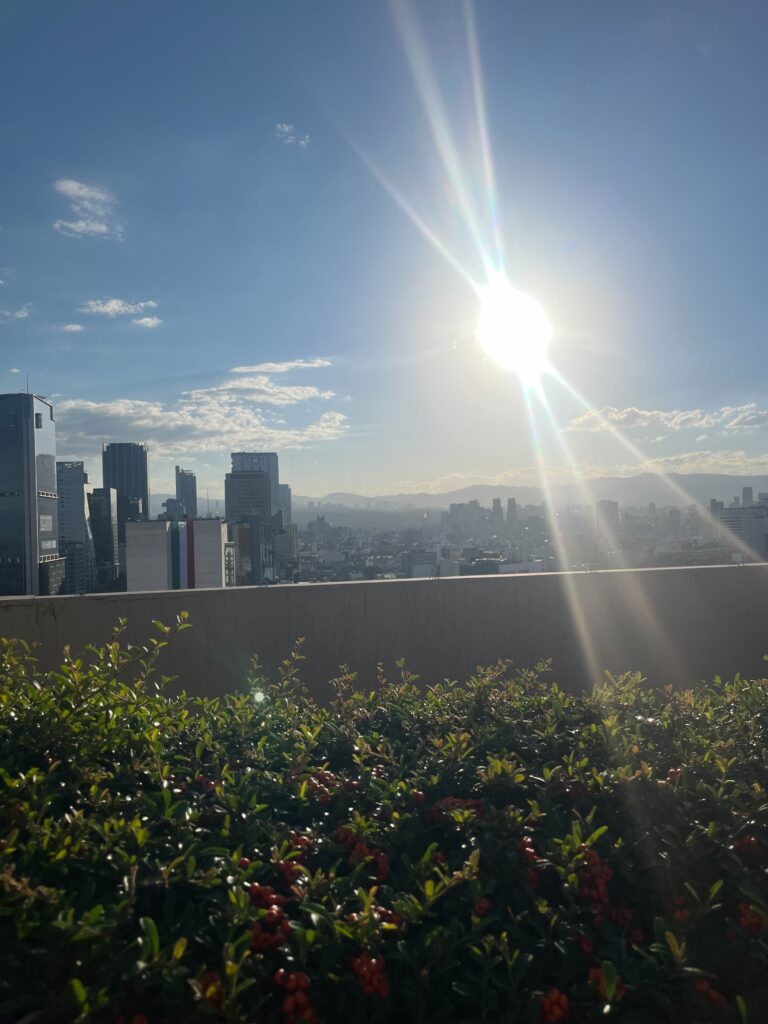“As we gather for the Cities Forward program kickoff, with the 12 Latin American and Caribbean cities and 12 American counterparts, we embark on a shared mission—an initiative that elevates sustainability, resilience, and equity into our unwavering fight against climate change.”
Angie Fyfe, ICLEI USA Executive Director
The U.S. Department of State, ICLEI-Local Governments for Sustainability (ICLEI), Resilient Cities Catalyst, and The Institute of the Americas, were thrilled to welcome the Cities Forward participants to our program kick-off in México City on September 26th-29th, 2023!
The 23 selected Latin America and the Caribbean (LAC) and U.S. cities gathered to start the peer-to-peer exchange program, which aims to expand capacity building and diplomatic engagement by implementing projects in LAC communities that solve critical urban challenges around sustainability, inclusivity, and resiliency.

To welcome participants from across the Western Hemisphere, Ambassador Nina Hachigian, Special Representative for City and State Diplomacy, Angie Fyfe, ICLEI USA Executive Director, Rodrigo de Oliveira Perpétuo, ICLEI SAMS Executive Secretary, and Edgar Villaseñoro, ICLEI MECS Regional Director, welcomed participants to share their excitement for the 12 city pairs to foster connections, share experiences, and outline project deliverables through the two-day workshop.
“This program you are about to embark on will help us achieve that by following three main principles: (1) focusing on city led-projects; (2) benefitting underrepresented communities; and (3) reaching sustainable solutions.”
Ambassador Nina Hachigian, Special Representative for City and State Diplomacy, U.S. Department of State

1) Project Kickoff and Goals
The Cities Forward program kickoff involved setting clear goals and establishing timelines, providing a structured foundation for the project’s activities across three years.
“With the technical tools and access to climate finance experts through Cities Forward, we are supporting local governments across the Western Hemisphere to implement projects that solve critical urban challenges around sustainability, inclusivity, and resiliency.”
Arie Pals, Senior Advisor Bureau of Western Hemisphere Affairs, U.S. Department of State

2) Identifying Implementation Barriers
The project uncovered potential barriers to implementation and finance gaps, allowing city pairs to develop strategies for overcoming these obstacles during advanced project preparation. A panel of finance experts from CAF Development Bank of the Latin America and the Caribbean (CAF), Inter-American Development Bank (IDB), and ICLEI SAMS shared insights into bridging finance gaps through increased responsible, affordable capital, including pre-feasibility assessments and relevant technical assistance.
“A human development approach, focusing on addressing the challenges and protecting the rights of the most vulnerable, has always been central to our sustainability and resilience work.”
Jeb Brugmann, Founding Principal, Resilient Cities Catalyst

3) Assessing Vulnerabilities, Overcoming Barriers
City participants discussed components to withstand and flourish despite chronic stresses, acute shocks, and interrelated challenges like climate change, inequality, and inadequate infrastructure. To improve urban resilience, city pairs dived into core shocks and stressors experienced, helping to identify areas of concern and potential collaboration.
“If we are not thinking in an integrated, forward way, then we are putting city systems at risk which jeopardizes the ability of all people to thrive today and into tomorrow.”
Andrew Salkin, Founding Principal, Resilient Cities Catalyst

4) Build Connections Between City Pairs
City pairs commenced their collaborative efforts by identifying specific cooperation and knowledge-sharing areas. Together, participants explored their City Cooperation Charters, striving for its formal adoption and outlining the principles that will guide their collaborative endeavors.
“In today’s diplomacy, City-to-City cooperation thrives through meaningful collaboration among local authorities, serving both themselves and their residents. The Cities Forward program connects cities through peer-to-peer relations and thematic groups, promoting exchanges that benefit all stakeholders.”
Rodrigo de Oliveira Perpétuo, ICLEI South America Executive Secretary

5) Establish Themes for Projects Ahead
City pairs identified common areas and priorities, drawing on discussions about shocks, stresses, and implementation gaps, for the following thematic areas:
- District redevelopment plans
- Climate adaptation in coastal areas
- Urban green infrastructure.
These themes will guide their collaborative efforts in addressing shared challenges and discussing areas of growth.
“A core part of the Cities Forward program is to create intentional moments for reflection and learning. We’ll continue asking ourselves and each other: Where are we seeing impact? Where are we facing challenges? Cities will share these insights throughout the program, leading to lessons and innovations that can be used by all.”
Ameneé Siahpush, Director of Impact and Program Design, Resilient Cities Catalyst

The Next Step
The Cities Forward team will continue to support city pairs by developing a comprehensive project roadmap that addresses potential obstacles to implementation. Our goal, by year’s end, is to have a clearly defined project implementation plan in place, accompanied by strong stakeholder engagement to ensure inclusivity in our discussions. Additionally, our commitment to fostering charter cooperation remains steadfast, as we continue to facilitate collaborative efforts by identifying specific cooperation and knowledge-sharing areas.

Thank You to Our Partners & Sponsors
- U.S. Department of State
- ICLEI ICLEI América do Sul
- ICLEI México, Centroamérica y el Caribe
- Resilient Cities Catalyst
- Institute of the Americas
- CAF -banco de desarrollo de América Latina y el Caribe-
- IDB Bank
For more Cities Forward photos, check out our album here!
